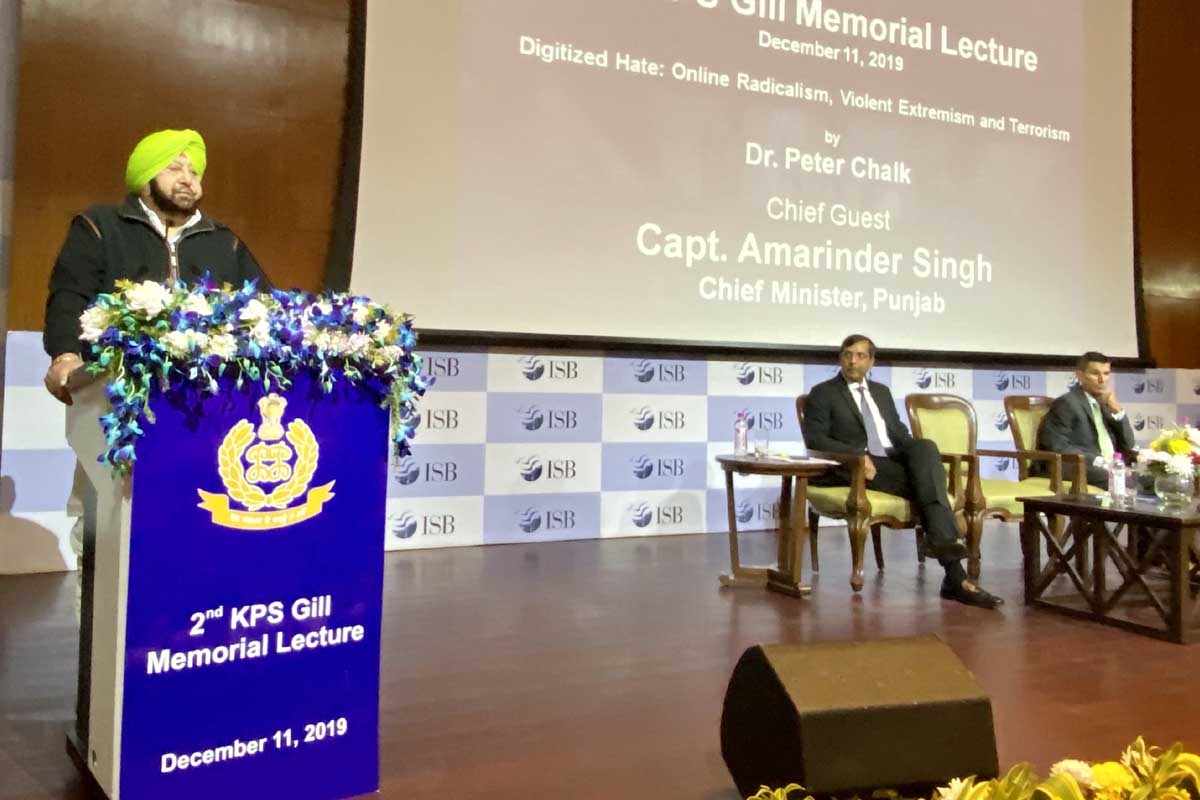Sana Mir and Usain Bolt named ambassadors of ICC T20 WC Qualifier 2024
Former Pakistan skipper Sana Mir and eight-time Olympic gold medallist Usain Bolt have been named as the ambassadors of women’s and men’s ICC T20 World Cup Qualifier 2024.
While delivering the 2nd KPS Gill Memorial Lecture on ‘digitized hate: online radicalism, violent extremism and terrorism, he warned that the Pak’s ISI “may well leverage encrypted social media sites, secure telecommunication platforms and online mapping technology to covertly facilitate jihadist recruitment drives or directly support terrorist strikes” in Kashmir, where it has a long history of backing anti-Indian outfits.

Punjab Chief Minister Amarinder Singh pointed out that in the globalised world of today, terror could easily straddle international geographical boundaries, with the use of Internet and social media further contributing to promoting terror and terror ideology for luring youth, spreading hatred and propaganda. (SNS)
Noted American expert on terror and internal security, Dr Peter Chalk on Wednesday said Pakistan could be harnessing the power of social media to launch attacks on the Indian economy.
While delivering the 2nd KPS Gill Memorial Lecture on ‘digitized hate: online radicalism, violent extremism, and terrorism, he warned that the Pak’s ISI “may well leverage encrypted social media sites, secure telecommunication platforms and online mapping technology to covertly facilitate jihadist recruitment drives or directly support terrorist strikes” in Kashmir, where it has a long history of backing anti-Indian outfits.
The best offensive mechanism to deal with Pakistan, suggested the US expert from RAND Corporation, was to work with friendly and partner countries to put pressure on Islamabad, and also to convince these nations that they could also not escape the wrath of terror outfits operating from Pak soil.
Advertisement
He warned that the US was playing a double role with Pakistan because of its strategic interest in Afghanistan – the reason why it wasn’t taking a tougher stand against Islamabad.
In the context of the growing use of drones and lone wolves to launch attacks, the American expert called for compulsory registration of such technology and legislations to counter the threat.
To ensure credibility in such counter-attacks, it was important to involve NGOs, human rights organisations and the community at large, he added, noting, in response to a question, that 100 per cent radicalization could not take place online and human contact was a part of the process.
Admitting that such groups become easy targets of extremists, Dr Chalk, however, asserted that they do not easily succumb to terrorist threats.
In an apparent reference to Referendum 2020, Dr Chalk observed that an intensive social media effort aimed at radicalizing young Sikhs was currently being waged by pro-Khalistani militants based in Pakistan and Diaspora groups operating out of the US, UK and Canada. “There are growing indications that the ISI is orchestrating much of this activity as part of a wider campaign to co-join instability in Punjab with unrest in Kashmir,” he further warned. Dr Chalk suggested that the state government identify vulnerable groups and engage with the community to counter the narrative and fight Pakistan’s proxy war.
In his keynote address, Punjab Chief Minister Amarinder Singh pointed out that in the globalised world of today, terror could easily straddle international geographical boundaries, with the use of the Internet and social media further contributing to promoting terror and terror ideology for luring youth, spreading hatred and propaganda.
Advertisement